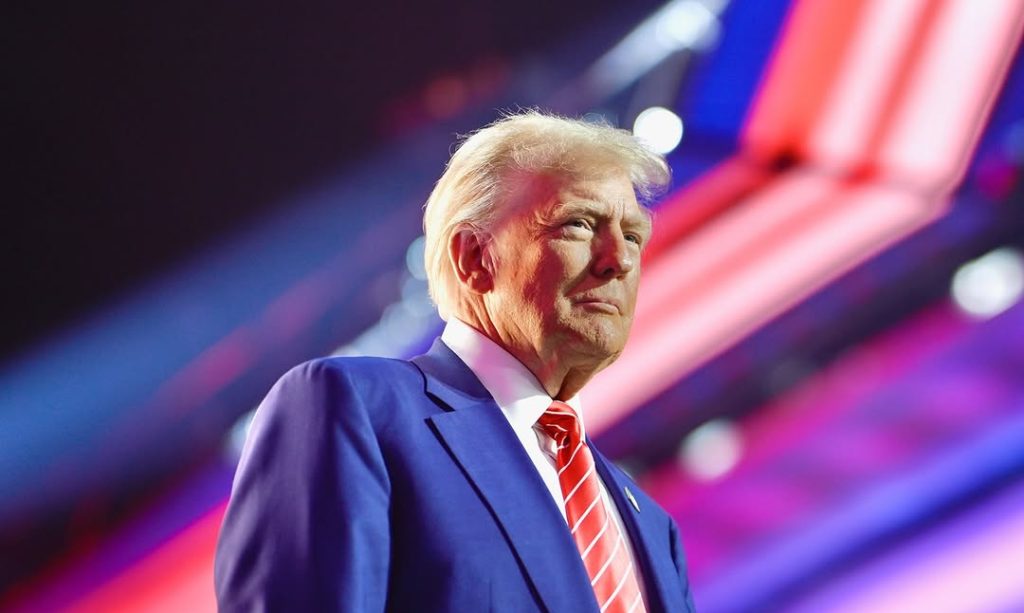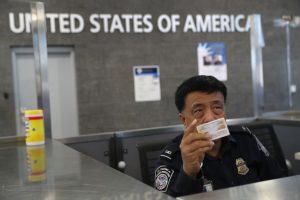Judge Temporarily Blocks Trump’s Executive Order on Birthright Citizenship.
A federal judge has issued a temporary restraining order against an executive order by President Donald Trump, which aimed to end birthright citizenship in the United States. The order, which was set to take effect on February 19, is now facing five separate lawsuits, and the ruling marks a significant legal setback for the Trump administration.
Judge John Coughenour, who is presiding over the case in Seattle, deemed the executive order “blatantly unconstitutional.” The restraining order came after a request by four states led by Democratic governors. These states have expressed concerns that the order would have a sweeping and detrimental effect on citizenship rights, particularly for children born in the U.S. to non-citizen parents.
A Bold Challenge to U.S. Citizenship
The executive order, which Trump signed on his first day in office, aimed to deny citizenship to children born in the U.S. if neither of their parents is a U.S. citizen or a legal permanent resident. The move has sparked fierce opposition from civil rights groups and Democratic attorneys general, who argue that the order infringes on the U.S. Constitution, specifically the 14th Amendment, which guarantees citizenship to anyone born on U.S. soil.
At the hearing, Lane Polozola, the Washington Assistant Attorney General, stressed the importance of the case, telling Judge Coughenour that the president’s executive order would effectively strip newborns of their citizenship. Polozola, who is representing the Democratic attorneys general from Washington, Arizona, Illinois, and Oregon, urged the judge to block the enforcement of the order, which would impact children born as early as February 19.
A High-Stakes Legal Battle
The restraining order issued by Judge Coughenour comes amid mounting legal challenges to the executive order. This case in Seattle is progressing more quickly than the other four lawsuits, and Judge Coughenour, appointed by Republican President Ronald Reagan, could issue a ruling after hearing arguments or take time to draft a decision before the order’s scheduled implementation.
The legal challengers, led by Democratic states, assert that Trump’s directive violates the 14th Amendment, which has been interpreted for over 100 years to grant citizenship to all children born in the United States, regardless of their parents’ immigration status. The Department of Justice, on the other hand, contends that Trump’s order is a necessary step in reforming the U.S. immigration system, particularly as the nation grapples with challenges at the southern border.
Consequences of the Executive Order
If Trump's executive order had been allowed to take effect, any children born in the U.S. after February 19 whose parents are not U.S. citizens or lawful permanent residents would have been denied citizenship. This would have had significant consequences, including the deportation of those children, restrictions on obtaining Social Security numbers, limited access to government benefits, and obstacles to working legally as they matured.
According to the Democratic-led states, over 150,000 newborns would be denied citizenship each year if the order was upheld. This would fundamentally alter the longstanding interpretation of the Constitution's citizenship clause, which has been in place for more than 127 years.
The 14th Amendment and Its Historical Context
The challengers argue that the 14th Amendment, ratified in 1868 after the Civil War, unequivocally grants citizenship to all individuals born on U.S. soil. This clause overturned the U.S. Supreme Court's infamous 1857 decision in Dred Scott v. Sandford, which had ruled that African Americans, including freed slaves, could not be considered U.S. citizens. Since then, the 14th Amendment has been understood to provide citizenship to children born in the U.S. regardless of their parents' legal status.
The Justice Department, however, contends that the 14th Amendment was never intended to grant citizenship to all children born on U.S. soil. Instead, it argues that the 1898 Supreme Court decision in United States v. Wong Kim Ark, which confirmed the citizenship of a child born in the U.S. to Chinese immigrants, applied only to the children of legal permanent residents, not undocumented immigrants. The department further stated that only individuals—not states—can bring claims under the citizenship clause, questioning the standing of the states involved in the lawsuit.
The Push for Legislative Action
In a related development, thirty-six Republican members of the U.S. House of Representatives have introduced a separate piece of legislation that seeks to limit automatic citizenship to children born only to U.S. citizens or lawful permanent residents. This legislative push highlights the ongoing divide between Democratic and Republican lawmakers on the issue of birthright citizenship.
As the case progresses, the temporary restraining order remains in place, preventing the implementation of the controversial executive order. Judge Coughenour’s decision serves as a critical turning point in the legal battle over birthright citizenship, a battle that is likely to have far-reaching implications for the future of immigration policy in the United States.
As of now, the fate of Trump's executive order remains uncertain, with further legal proceedings set to unfold in the coming weeks. The outcome of this case will not only determine the future of birthright citizenship but also shape the broader debate over immigration reform in the United States.





















